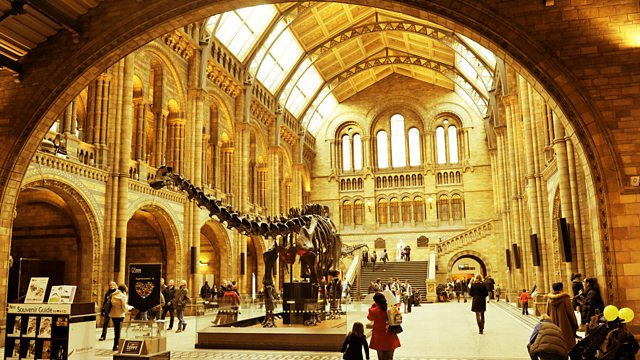Alice Eastwood
Sandy Knapp explores the life of pioneering American botanist, Alice Eastwood. From 2015.
Alice Eastwood was a self-taught botanist using her holidays to collect and identify plants in Colorado who went on to become the curator of the California Academy of Science botany collection.
Over her career Eastwood discovered many of the plants on California's coastline and during the fire that followed the 1906 earthquake in San Francisco Eastwood rescued 1,497 important specimens from the museum – only made possible because she had taken the fortunate step of segregating it in the first place.
The rest of the collection was destroyed and Eastwood devoted the rest of her life to rebuilding it. When she retired the collection contained over 300,000 specimens, over three times as many as were destroyed in 1906.
Sandy Knapp explains why Alice Eastwood is her Natural History Hero.
First heard on �鶹�� Radio 4 in October 2015.
Last on
More episodes
Previous
Dr Sandy Knapp

Sandy came to the Natural History Museum in 1992 and has described more than 75 new species of plants. She is the author of several popular books on the history of science and botanical exploration, including the award-winning (2004). She is also the author of more than 175 peer-reviewed scientific papers and actively involved in promoting the role of taxonomy worldwide.
In 2009 she was honoured by the by the and the UK National Biodiversity Network’s .
Alice Eastwood

As curator of the California Academy of Sciences he undertook the unconventional act of separating botanical type specimens, which would turn out to be a very fortunate decision.
Broadcasts
- Fri 2 Oct 2015 13:45�鶹�� Radio 4
- Mon 5 Sep 2016 09:30�鶹�� Radio 4
- Fri 8 Nov 2019 14:15�鶹�� Radio 4 Extra
- Sat 9 Nov 2019 02:15�鶹�� Radio 4 Extra
5 scientists who changed the way we see nature
The Natural History Heroes who inspired today's experts.
Natural Histories
Brett Westwood explores nature's profound impact on human culture and society.
Download Natural History Heroes
Subscribe to the free Natural Histories podcast.

